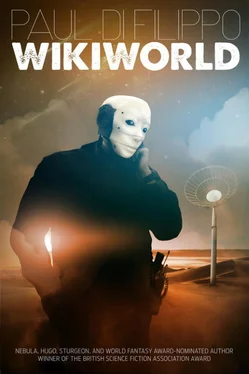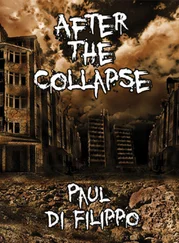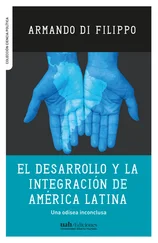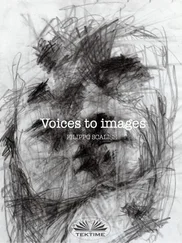Paul Di Filippo - WikiWorld
Здесь есть возможность читать онлайн «Paul Di Filippo - WikiWorld» весь текст электронной книги совершенно бесплатно (целиком полную версию без сокращений). В некоторых случаях можно слушать аудио, скачать через торрент в формате fb2 и присутствует краткое содержание. Город: Toronto, Год выпуска: 2013, ISBN: 2013, Издательство: ChiZine Publications, Жанр: Фантастика и фэнтези, на английском языке. Описание произведения, (предисловие) а так же отзывы посетителей доступны на портале библиотеки ЛибКат.
- Название:WikiWorld
- Автор:
- Издательство:ChiZine Publications
- Жанр:
- Год:2013
- Город:Toronto
- ISBN:978-1771481557
- Рейтинг книги:4 / 5. Голосов: 1
-
Избранное:Добавить в избранное
- Отзывы:
-
Ваша оценка:
- 80
- 1
- 2
- 3
- 4
- 5
WikiWorld: краткое содержание, описание и аннотация
Предлагаем к чтению аннотацию, описание, краткое содержание или предисловие (зависит от того, что написал сам автор книги «WikiWorld»). Если вы не нашли необходимую информацию о книге — напишите в комментариях, мы постараемся отыскать её.
WikiWorld — читать онлайн бесплатно полную книгу (весь текст) целиком
Ниже представлен текст книги, разбитый по страницам. Система сохранения места последней прочитанной страницы, позволяет с удобством читать онлайн бесплатно книгу «WikiWorld», без необходимости каждый раз заново искать на чём Вы остановились. Поставьте закладку, и сможете в любой момент перейти на страницу, на которой закончили чтение.
Интервал:
Закладка:
Leaving Tug once again alone with Olive.
Short and stout and a few years younger than Tug, Olive Ridley favoured unadorned smock dresses in various dull colours of a burlap-type fabric Tug had never seen elsewhere, at least outside of barnyard settings, complemented by woolly tights of paradoxically vivid hues and ballet-slipper flats. She wore her long grey-flecked black hair in a single braid thick as a hawser. Her large plastic-framed glasses lent her face an owlish aspect.
Tug and Olive had met and bonded over their love of vintage postcards, bumping into each other at an ephemera convention, chatting tentatively, then adjourning for a coffee at a nearby branch of Seattle’s ubiquitous Il Giornale chain. Subsequent outings found them exploring a host of other mutual interests: from movies, of course, through the vocal stylings of the elderly Hank Williams. Their middle-aged, cool-blooded romance, such as it was, progressed through retrospectively definable stages of intimacy until moving in together seemed inevitable.
But cohabitation disclosed a plethora of intractable quirks, crotchets, demands and minor vices held by both partners, fossilized abrasive behaviour patterns that rendered each lover unfit for long-term proximity—at least with each other.
Three years after putting her collection of Felix the Cat figurines—including the ultra-rare one depicting Felix with Fowlton Means’s Waldo—on Tug’s shelves, Olive was tearfully shrouding them in bubblewrap.
Despite this heavy history, Tug vowed now to deal with Olive with neutral respect. She had worked hard all morning to help him move, and now obviously sought some kind of rapprochement.
Olive’s words bore out Tug’s intuition.
“I wanted to have some time for just us, Tug. I thought we could grab some ice cream at Don’s Original, and talk a little.”
Don’s Original had been their favourite place as a couple. Tug was touched.
“That—that’s very kind of you, Olive. Let’s go.” Tug tossed his pack in the car, and climbed in.
The drive to Culver Road took only a few minutes. (With no car of his own, Tug felt weird to be transiting the city in this unaccustomed fashion.) They mostly spoke of the inarguable: what a Grade-A jerk Narcisse Godbout had unsurprisingly proved himself to be.
Inside Don’s, Tug and Olive both paused for a sentimental moment in front of the Banana Split Memorial. Fashioned of realistic-looking moulded and coloured silicone, like faux sushi, the dusty monument never failed to bring a sniffle to any viewer of a certain age.
Forty years ago, the beloved and familiar Cavendish banana—big creamy delicious golden-skinned monocultured artefact of mankind’s breeding genius—had gone irrevocably extinct, victim of the triple-threat of Tropical Race 4, Black Sigatoka, and Banana Bunchy Top Virus. In the intervening decades, alternative cultivars had been brought to market. Feeble, tiny, ugly, drab, and starchy as their plantain cousin, these banana substitutes had met with universal disdain from consumers, who recalled the unduplicatable delights of the Cavendish.
Tug’s own childhood memories of banana-eating were as vivid as any of his peers’. How thoughtlessly and gluttonously they had gorged on the fruit, little anticipating its demise! Sometimes after all these years of abstinence he believed he could not recall the exact taste of a banana. Yet at other unpredictable moments, his mouth flooded with the familiar taste.
But this particular moment, despite the proximity of the banana simulacrum, did not provide any such Proustian occasion.
Tug and Olive found a booth, ordered sundaes, and sat silent for a moment, before Olive asked, “Tug, precisely what are you doing with yourself?”
“I—I don’t know exactly. I’m just trying to go with the flow.”
“Squatting with a bunch of strangers—yes, Pete told me about it—is not exactly a long-term plan.”
“I’m thinking… maybe I can write now. Now that I’ve shed everything that kept me down. You know I’ve always wanted to write. About movies, music, my everyday life—”
Olive’s look of disgust recalled too many similar, rankling moments of harsh condemnation, and Tug had to suppress an immediate tart rejoinder.
“Oh, Tug, you could have written at any time in the past twenty years. But you let those early rejections get to you, and you just caved in and gave up.”
Unspeaking, Tug poked pensively and peevishly at his melting ice cream. Then he said, “Can you drop me off in Henrietta? I’ve got to find the Tom Pudding .”
7. IN PURSUIT OF THE TOM PUDDING
At its inception the Attawandaron Canal had stretched unbroken for nearly four hundred miles, from Beverwyck on the Hudson River, the state’s capital, all the way to Bisonville on the shores of Lake Attawandaron, another of the Grands. Constructed in the mid-1800s during the two terms of President Daniel Webster, the Canal had been an engineering wonder, and came to occupy a massive place in American history books, having opened up the Midwest to commerce with the established East, and also generated an immense folklore, still fondly recalled. The Canal Monster, Michel Phinckx, Sam Patch, and other archetypes. Bypassed now by other modes of transport, chopped by development into long and short segments, the old Canal had become a recreational resource and prominent talismanic presence in Carrollboro and environs.
Tug had chosen the Henrietta district as a likely starting point for his search for the Tom Pudding . Beginning at Carrollboro’s city lines where the Canal entered town, he would follow its riverine length until he encountered the utopic loafer’s haven limned by Pete.
Tug waved goodbye to Olive’s dwindling rear-view mirror, shouldered his pack, and looked at the westering sun. Their trip to the Little Theatre to drop off Tug’s last load of stuff had chewed up more time. Now he had barely a few hours before frosty autumnal dusk descended. No plans for how to spend the night. Better get moving.
Tug’s earlier whimsy of inhabiting a vanished Currier & Ives era intermittently materialized as he began to hike the Canal. Stretches of the original towpath, paved or not, served as a bike and pedestrian trail, alongside the somnolent unworking waters channelled between meticulously joined stone walls, labour of a thousand anonymous Irish and Krakówvian workers. The mechanisms of the old locks hulked like rusted automatons. The whole scene radiated a melancholy desuetude most pleasing to Tug. Something older even than him, yet still useful in its decrepit fashion.
Of course, at other points the Canal fought with modernity—and lost. It vanished under grafittied bridges or potholed pavement, was pinched between ominous warehouses, parallelled by gritty train tracks: a Blakean straitened undine.
Tug was brought up short at one point as the Canal slipped liquidly beneath a razor-wire-topped fence surrounding an extensive auto junkyard. Furious big dogs hurled themselves at the chainlink, bowing it outward and causing Tug to stumble backwards. He worked his way around the junkyard by gritty alleys and continued on.
By ten P.M. exhaustion had set in. The neighbourhood around him held no familiar landmarks, a part of Carrollboro unvisited by Tug before, despite his long tenure in the city. He found a Tim Horton’s open all night, bought a coffee and doughnut as requisite for occupying a booth unmolested by the help. But the desultory kids behind the counter cared little about his tenancy anyhow. He drowsed on and off, dreaming of a Narcisse Godbout big as a mountain, up whose damp woollen flank Tug had to scrabble.
In the morning, he performed some rudimentary ablutions in the doughnut shop rest room, his mouth tasting like post-digested but pre-processed civet-cat coffee beans. Then he went on hunting the elusive barge full of slackers.
Читать дальшеИнтервал:
Закладка:
Похожие книги на «WikiWorld»
Представляем Вашему вниманию похожие книги на «WikiWorld» списком для выбора. Мы отобрали схожую по названию и смыслу литературу в надежде предоставить читателям больше вариантов отыскать новые, интересные, ещё непрочитанные произведения.
Обсуждение, отзывы о книге «WikiWorld» и просто собственные мнения читателей. Оставьте ваши комментарии, напишите, что Вы думаете о произведении, его смысле или главных героях. Укажите что конкретно понравилось, а что нет, и почему Вы так считаете.










